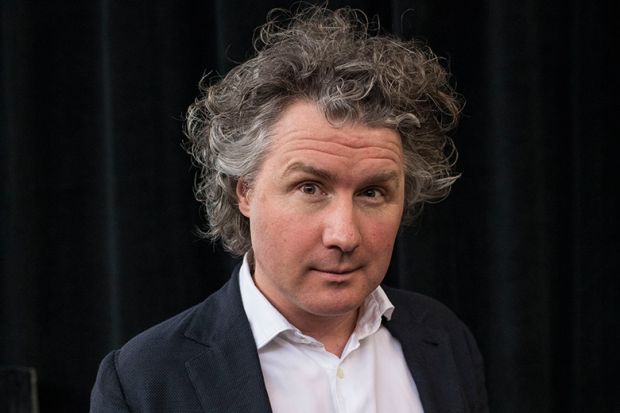“I have a slightly ambivalent relationship with fame – or, at least, the highly contextualised form of fame I had,” reflected Ben Goldacre on his time as one of Britain’s most prominent scientists.
For more than a decade from the early noughties, Dr Goldacre was everywhere, writing best-selling science books and a weekly column in The Guardian, appearing on Radio 4 shows and selling out the Hammersmith Apollo and other concert halls alongside fellow “rockstar scientist” Brian Cox in the science-comedy show Uncaged Monkeys. But while one became one of the BBC’s biggest stars, the other has largely disappeared from public view, save for occasional tweets about his research or cycling facilities in Oxford, albeit to 476,000 followers.
But the 47-year-old researcher – who has been based at the University of Oxford’s Nuffield department of primary care health sciences since 2015 – said he was happy to have stepped back from the limelight.
“Showing off, writing books and doing theatre shows was always a hobby as I always had a full-time job as a doctor or researcher, and while I didn’t strongly dislike the attention, gaining the approval of strangers didn’t seduce me,” Dr Goldacre told Times Higher Education.
“Once I had children – and some difficult experiences with stalkers – I decided I wanted to get my head down and focus on the day job.”
His research builds on many of the themes that Goldacre fans will recognise in his writing, particularly promoting smarter use of public health and clinical trial data, which alongside his takedowns of pseudoscience, brought him an unlikely mass audience.
“If you want to improve reproducibility and transparency in research, then of course you can shout about the problem, but it’s better to create tools that make it easy for people to do the right thing,” Dr Goldacre explained.
Among the tools created by Dr Goldacre’s team is the NHS England-backed OpenSAFELY platform, which allows researchers to run analyses securely across the medical data of more than 58 million patients during Covid-19.
But OpenSAFELY also imposes open working as a default. “All code that executes in the platform is shared automatically. That sounds dry and geeky but open science is hugely important for quality, reproducibility and efficiency,” he said.
“Previously people asked researchers to share their code for review and reuse, but this has not been very successful. OpenSAFELY makes it the automatic default: it’s the only way you can execute code on the platform.”
However, creating tools to enable this scale of quantitative analysis requires a different mentality towards research, explained Dr Goldacre. “If the data accessible through OpenSAFELY was an Excel spreadsheet, it would be seven columns wide, and 60 billion rows long,” he said. “You can’t use point and click tools here, you have to write code.”
Some parts of academia have approached coding as a “hobbyist” activity, he said, “but that’s no longer realistic.
“Quantitative research now has software at its core. As a community we need to employ research software engineers, people who are coders from the end of their hair to the tip of their toes. We need to pool skills with them, but also share the credit with them.”
Thanks to a generous endowment from Hong Kong hedge fund tycoon Peter Bennett announced earlier this month, Dr Goldacre is hoping to expand the work of his 30-strong DataLab team at what is now the Bennett Institute for Applied Data Science.
“My joy and gratitude for this endowment goes well beyond the normal pleasure of seeing your own research being funded,” he said.
“Like many groups, for our whole team, this is a mission, not a job. We’re not ashamed to want to change the world. Now we can move a little faster than traditional funders will permit.”
Outside his own research, Dr Goldacre said he is encouraged by the “fantastic work” done by the UK Reproducibility Network – awarded £8.5 million for training this month – the US’ Open Science Foundation and the UK’s Software Sustainability Institute to promote open science, praising the steps forward in areas like structural genomics, physics and psychology. “What saddens me is that this work hasn’t really permeated into medical research, even if a lot of people are using the language of openness,” he said.
Those missing Dr Goldacre’s presence in the public realm will be pleased that he will be in the news shortly when the Department of Health and Social Care publishes his review of how health data can be used more efficiently and safely to benefit patients.
“At some point, I will go back and start writing for a general audience but it’s good to be contributing to public policy. Communicating with policymakers takes the same skills as communicating with the public,” he said.
Register to continue
Why register?
- Registration is free and only takes a moment
- Once registered, you can read 3 articles a month
- Sign up for our newsletter
Subscribe
Or subscribe for unlimited access to:
- Unlimited access to news, views, insights & reviews
- Digital editions
- Digital access to THE’s university and college rankings analysis
Already registered or a current subscriber? Login









